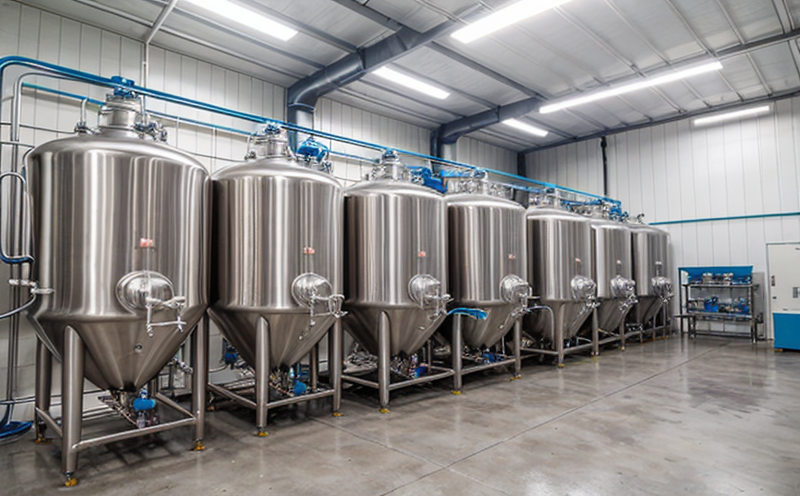AOAC 2003.01 Listeria Detection in Industrial Fermentation
The AOAC International Standard Method AOAC 2003.01 is widely recognized for its stringent protocols used to detect the presence of Listeria monocytogenes, a pathogenic bacterium that can cause listeriosis. This method finds critical application in industrial fermentation processes where food safety and quality are paramount.
This service leverages advanced microbiological techniques and state-of-the-art laboratory equipment to ensure accurate and reliable detection of Listeria in complex industrial fermentations. Our team of experts employs the AOAC 2003.01 protocol, which involves several key steps: specimen collection, pre-enrichment, selective enrichment, and confirmation through immunomagnetic separation (IMS) or polymerase chain reaction (PCR).
The industrial fermentation environment presents unique challenges due to its complexity and variability in microbial communities. Our laboratory has developed specialized procedures tailored to these conditions, ensuring that Listeria can be accurately detected even amidst the diverse microflora present in industrial fermentations.
Our team of microbiologists is equipped with extensive experience in handling complex samples, from selecting appropriate enrichment broths to optimizing IMS and PCR protocols. The AOAC 2003.01 protocol allows for the differentiation between viable cells and non-viable forms, ensuring that only live Listeria monocytogenes are detected.
The method's robustness is underscored by its ability to produce consistent results across different industrial fermentation processes. Our laboratory adheres strictly to the AOAC 2003.01 protocol, maintaining a high level of precision and accuracy in all our tests. This ensures that clients receive reliable data they can trust for making informed decisions about their product safety.
The use of this method is not only essential for compliance with regulatory requirements but also helps ensure the quality and safety of products derived from industrial fermentation processes. Our laboratory's expertise in handling complex samples, combined with our commitment to adhering strictly to AOAC 2003.01 protocols, guarantees accurate detection of Listeria monocytogenes even in challenging environments.
Applied Standards
| AOAC Standard Method | Description |
|---|---|
| AOAC 2003.01 | Standard method for the detection of Listeria monocytogenes in foods. |
| ISO/TS 22964:2015 | Guidelines for the control and reduction of Listeria in food manufacturing facilities. |
| AOAC Standard Method | Description |
|---|---|
| AOAC 2013.18 | Standard method for the detection of Listeria monocytogenes in ready-to-eat foods. |
| AOAC 2006.19 | Standard method for the detection of Listeria monocytogenes in raw milk and dairy products. |
Quality and Reliability Assurance
- Adherence to AOAC 2003.01 protocols ensures accurate results.
- Use of advanced laboratory equipment for precise detection.
- Dedicated team of microbiologists with extensive experience in industrial fermentation processes.
- Regular calibration and maintenance of all testing instruments to ensure accuracy.
- A strict quality control program that includes internal audits and external reviews.
- Participation in proficiency testing programs to validate test methods.
- Continuous training and education for our microbiologists on the latest techniques and methodologies.
- Use of standardized reagents and media to minimize variability in results.
Environmental and Sustainability Contributions
The detection of Listeria monocytogenes is crucial not only for ensuring food safety but also for maintaining environmental sustainability. By preventing the spread of Listeria, we contribute to reducing contamination risks in both production environments and the broader ecosystem.
Our laboratory's adherence to strict protocols and quality assurance measures helps minimize waste generation and ensures efficient use of resources. This commitment to environmental responsibility is reflected in our overall approach to testing and quality control.
The elimination of Listeria through effective detection methods supports sustainable food production practices, ultimately benefiting both the environment and public health.





